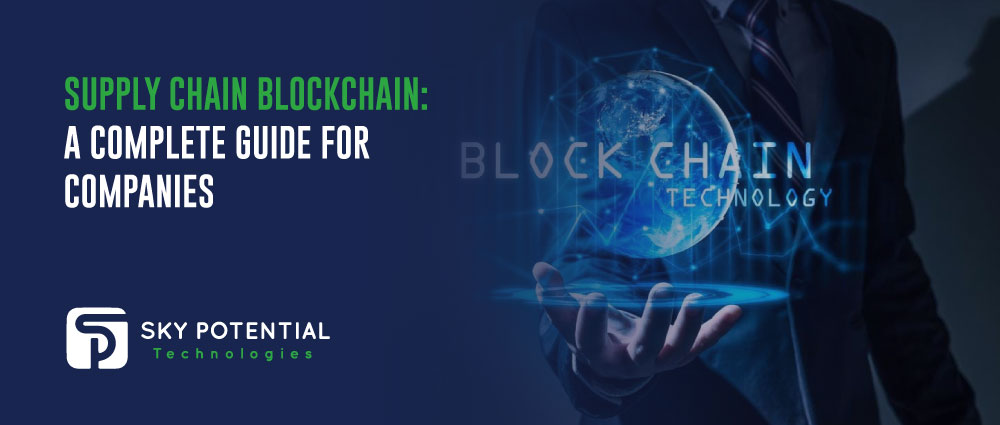- AI

Artificial Intelligence

Smart Products & Services
We follow Smart Products & Services

Intelligent Business Functions & Processes
We follow Intelligent Business Functions & Processes

Robotic Process Automation
We follow Robotic Process Automation

Personalized
healthcareWe follow Personalized healthcare

Identifying at-risk patients
We follow Identifying at-risk patients

Optimized routing and scheduling
We follow Optimized routing and scheduling
- ML

Machine Learning

Predictive
AnalyticsWe follow Predictive Analytics

Service Personalization
We follow Service Personalization

NLP
We follow NLP (Natural Language Processing)

Stock Market Forecasting
We follow Stock Market Forecasting

Fraud Prevention
We follow Fraud Prevention

Recommender engines
We follow Recommender engines
- blockchain

Blockchain

Public Blockchain
We follow Public Blockchain

Private Blockchain
We follow Private Blockchain

DEFI
We follow DEFI Blockchain

Initial stake pool offering development
We follow initial stake pool offering development
- IOT

Internet of Things
- AR
- Business Solutions

Business Solution

Business Performance Management
We follow Business Performance Management

Decision Making & Big Data Analytics
We follow Decision Making & Big Data Analytics

Enterprise Data Management
We follow Enterprise Data Management
- Apps

Apps

Native Apps
We follow Native Apps

Cross Platform Apps
We follow Cross Platform Apps

Web Apps
We follow Web Apps

Hybrid Apps
We follow Hybrid Apps

Cloud Native Apps
We follow Cloud Native Apps
- Lab

Supply Chain Blockchain: A Complete Guide for Companies
Blockchain technology is completely changing how supply chains are managed by enterprises. Blockchain for supply chains can help boost productivity, cut costs, and build trust between suppliers and customers by offering a safe and transparent mechanism to monitor goods from their point of origin to their final destination. According to Statista, in 2021, the market for blockchain technology was estimated to be worth 5.85 billion dollars. By 2030, it is anticipated to rise by a compound annual growth rate of 82.8% to $1,235.71 billion USD.
Yet, integrating blockchain consulting and development into your company has its own unique set of difficulties. In order to provide you a better and deeper understanding of what blockchain is and how this revolutionary technology can be used to elevate and execute supply chains of the future, we’ll examine the advantages and disadvantages of adopting it for supply chain management in this blog.
How Does Supply Chain Management Utilize Blockchain Technology?

Since ancient times, complicated technology have been used to manage trade, transportation, inventories, and other supply chain activities. Since the dawn of the digital age, companies have been looking for novel ways to enhance their operations. Blockchain, the technology that underpins digital currency or cryptocurrency, is one such technology that has significantly impacted the financial sector. Blockchain technology is a term that Nakamoto first used in his 2008 book on Bitcoin, when he first described a decentralized peer-to-peer network that underlies Bitcoin transactions.
A decentralized, digital ledger using business technology solutions like blockchain, keeps track of transactions in a secure and open manner. Blockchain can be used in supply chain management to monitor goods from their point of origin to their final destination, offering a safe and transparent approach to confirm the legitimacy and caliber of goods. An unchangeable record of the product’s path is produced by recording each transaction on a block, which is subsequently added to a chain of blocks. This enables greater effectiveness, lower costs, and higher confidence between suppliers and customers.
Blockchain technology’s decentralized characteristic enables real-time data sharing between several parties while providing secure data storage and avoiding unauthorized network alterations. The need for businesses to adopt this cutting-edge technology has grown as they try to adjust to settings that are changing quickly and becoming more digital. Even while blockchain adoption is now uncommon, it will eventually become a crucial tool for businesses that wish to continue their digital transformation.
Businesses should not ignore blockchain technology if they want to raise the standard of their supply chain operations because major corporations have already become involved in the ecosystem. Businesses can gain from higher efficiency, more transparency, and lower transaction costs by utilizing blockchain for supply chain.
Supply Chain Management Using Blockchain in the Real World
A project carried out by IBM and a major retailer in 2017 serves as an illustration of the usage of blockchain in supply chain management. They worked together to identify the origin of a bundle of mango slices, which took nearly seven days to perform using paper papers. The efficiency of blockchain in tracking and validating product origins may be seen by the fact that a blockchain search only took 2.2 seconds in comparison. Similar to this, Nestlé started using business technology solutions, in April 2019 and now let’s clients use QR codes to follow the full production process from farm to warehouse. By utilizing blockchain, Nestlé hopes to increase consumer trust in the reliability and authenticity of its products. Nestlé is a founder member of the IBM Food Trust.
In June 2016, IBM and Maersk joined together to introduce TradeLens, a blockchain application that links shippers, ports, customs offices, banks, and other organizations in Maersk’s worldwide supply chain. This program gets rid of pointless paperwork and offers real-time goods tracking. When we discuss the difficulties in applying blockchain technologies in supply chains later in this blog, we will go into more detail on TradeLens’ closure in November 2022.
The world’s largest retailer, Walmart, uses blockchain technology in its live restaurant operations to track, identify, and, if required, remove food. The startup wants to cut the time between food recalls in half, to only seconds. In May 2018, HSBC used blockchain to perform the first commercially successful trade finance transaction in history. A letter of credit for a deal with Cargill that was built on the blockchain served as the bank’s proof of concept. These supply chain blockchain applications show how blockchain technology may simplify processes in trade finance, logistics management, and supply chain management.
Benefits of Supply Chain Blockchain Use

By lowering the cost of trust through a decentralized, distributed, secure, and unchangeable ledger, blockchain technology has the potential to revolutionize the supply chain sector. This cutting-edge transactional approach has the potential to upend the economic system and supply chain architecture.
Blockchain consulting and development has been employed by the banking sector for the longest, but it has also proven to be a disruptive force in other industries. Financial services really dominated the market for solution providers with a 39% edge, especially in cross-border payments, digital asset transfers, and digital/encrypted currencies, according to the Forbes 2020 list of the top 50 blockchain businesses.
Moreover, business technology solutions, can guarantee authenticity, immutability, and security. It can authenticate data and documents as well as detect fraud and stop theft. Additionally, it can simplify processes, enhance quality control, boost business automation software, and do away with middlemen.
Blockchain technology can increase compliance, lower transaction costs, and lessen human error in terms of operational efficiency. So, the blockchain is an effective facilitator of openness and confidence that the supply chain sector can greatly benefit from.
Obstacles to Blockchain Adoption in the Supply Chain

Enterprise blockchain implementation necessitates establishing shared data standards and bridging organizational barriers to encourage record checking despite its potential advantages. We have listed a few other challenges that may come up while using blockchain for supply chain management:
-
Lack of Information and Awareness
Lack of knowledge and awareness of the potential of blockchain
Insufficient skilled labor is available to design, install, and run blockchain solutions in supply chain operations.
Lack of trust among businesses who are hesitant to share data
-
Administration and Regulation
Absence of well-defined legal frameworks to control blockchain transactions across different industries
Minimal industry standards to guide the administration and operation of blockchain solutions.
-
Interoperability
Integration problems brought on by the use of several unique solutions by all parties concerned
Lack of an industry-standard “one blockchain” solution
-
Disintermediation Risk
Intermediates in the logistic chain that are redundant.
-
Performance
Use cases and specifications for current blockchain technologies are very specific.
Fewer direct benefits for the flow.
-
Commercial Potential
Many of the existing blockchain solutions lack broad global industry collaboration, which prevents them from becoming commercially viable.
One such instance is the IBM and Maersk partnership TradeLens, which had to be terminated for the same reasons.
Blockchain Technology Challenges

Blockchain technology has the potential to upend numerous businesses. It does have its difficulties, though, just like any new technology.
-
Scalability
The blockchain networks in use today are unable to process lots of transactions rapidly. This is due to the decentralized nature of blockchain networks, where each node must process and validate each transaction.
-
Interoperability
Because multiple blockchain networks are incompatible with one another, it is challenging to transfer assets and data across them.
-
Privacy
Another issue with blockchain technology is privacy. Blockchain networks are not private, while being “safe.” Users’ identities may be made known if their transactions are connected to their public addresses, which are visible to the general public.
-
Cost
The cost of maintaining a node on a blockchain network is expensive, and depending on the network, the cost of transactions may also be significant.
These are a few of the problems that blockchain technology is facing. Blockchain technology is still intriguing and has a lot of potential despite these difficulties.
The Future of Supply Chain In Terms Of Blockchain?

Supply chain management, which encompasses the coordinated management of product, process, information, and cash flows, is crucial for corporate success. This task is difficult, nonetheless, due to the growing complexity of global supply chain networks and the uncertainties in the geopolitical, technological, and economic domains (Chang, Y et al., 2019). With its potential to secure data storage, replace conventional business models, and boost competitiveness in the areas of product cost, working capital, speed-to-market, ROI, stakeholder value, and profitability, blockchain technology is a promising option. The issue is not whether to deploy blockchain technology, but rather when to do so. Blockchain technology adoption, however, faces some difficulties, including industry-specific requirements and a lack of understanding, trust, legal frameworks, interoperability, and performance.
Blockchain technology has several applications outside of the financial business, though they include logistics, insurance, energy, industry, health, and more. By enabling the tracking and monitoring of items in real-time across the supply chain network, the use of blockchain technology for supply chain management has the potential to increase transparency, security, and efficiency. Early adopters of blockchain technology can get a competitive edge and keep on top of trends. The number of blockchain services and applications is expanding, therefore caution is required to make sure that enterprises don’t miss out on this chance.
Conclusion
Blockchain technology has enormous promise, and its uses are still being discovered. More creative use cases will develop as the technology advances, and blockchain technology’s promise will be fully fulfilled. With the correct investment and adoption, blockchain technology might become a pillar of our digital economy. Furthermore if you are looking for business automation software, then get in touch with Sky Potentials.

















































Leave a Reply